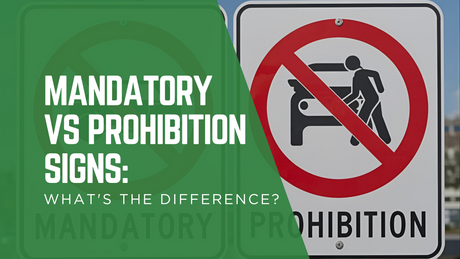Your Expert Guide to Choosing the Right Kit for the Job (and Staying Compliant in Australia)
When it comes to workplace safety, spills aren’t just a nuisance—they can cause serious hazards, environmental damage, and hefty fines if you’re not prepared. In Australia, under the Work Health and Safety (WHS) Act and EPA regulations, businesses have a legal responsibility to control and clean up hazardous spills quickly and effectively.
That’s where spill kits come in. But not all spill kits are created equal. Choosing the wrong one can mean your kit doesn’t actually absorb what’s on the ground—leaving your team and the environment at risk.
To make it easy, here’s the expert breakdown of the 3 main types of spill kits you’ll find in Australian workplaces, what they’re used for, and how to make sure you’re compliant.
1. General Purpose Spill Kits
Best for: Water-based liquids, coolants, paints, and mild chemicals
Not suitable for: Hydrocarbons (oils, fuels) on water surfaces
General Purpose Spill Kits are the all-rounder of spill response. They’re perfect for warehouses, workshops, manufacturing facilities, and anywhere you might encounter everyday non-aggressive spills.
They usually contain:
- Absorbent pads and booms and floor sweep designed for water-based and non-hazardous liquids
- Disposal bags for safe waste handling
- PPE (gloves, goggles) to protect your team
- Signage and instructions for safe spill response
Compliance Tip: Make sure your general-purpose kit is clearly labelled and stored where it’s easily accessible. Under WHS guidelines, employees must be trained in how to use it.

2. Oil & Fuel Spill Kits
Best for: Hydrocarbons such as oils, fuels, petrol, diesel, solvents
Special feature: Hydrophobic—repels water while absorbing oil
Oil & Fuel Spill Kits are the marine and heavy industry hero. The absorbents are specially designed to soak up hydrocarbons while floating on water—making them ideal for docks, boatyards, mine sites, and any business that works near stormwater drains or waterways.
They usually contain:
- Oil-only absorbent pads and booms (water-repellent) and loose absorbent floor sweep
- Specialised disposal bags for waste
- PPE suitable for hydrocarbons handling
- Signage and instructions for safe spill response

Compliance Tip: The EPA has strict rules around oil spills entering drains. If you store or handle hydrocarbons, an oil & fuel kit isn’t optional—it’s essential for environmental compliance.
3. Chemical Spill Kits or Hazchem Spill Kits
Best for: Hazardous chemicals, acids, caustics, aggressive liquids
Not suitable for: Food preparation areas without food-grade absorbents
Chemical Spill Kits are built for high-risk environments where dangerous liquids can cause harm to people, property, and the environment. These kits are often found in laboratories, medical facilities, chemical manufacturing, and pool maintenance businesses.
They usually contain:
- Highly absorbent, chemical-resistant pads and booms and floor sweep absorbent
- Heavy-duty PPE (chemical-resistant gloves, Goggles, respirators if required)
- Hazard-specific disposal waste bags
- Signage and instructions for safe spill response
Compliance Tip: Safe Work Australia requires that your Safety Data Sheets (SDS) for each chemical match the type of absorbents in your kit. A chemical spill kit should be tailored to your actual hazards—not just a “one-size-fits-all” box.
Check out our Video
Choosing the Right Spill Kit for Your Workplace
The right spill kit depends on:
- The type of liquids you store or use
- The volume of potential spills
- Where the spill is likely to occur (indoors, outdoors, near water)
- Compliance requirements for your industry
Many Australian businesses have more than one type of spill kit onsite to cover different hazards. For example, a transport company might keep oil & fuel kits in vehicles, chemical kits in the workshop, and general-purpose kits in admin areas.
Keeping Your Spill Kits Compliant
Owning a spill kit isn’t enough—you must:
- Inspect and restock after use or at least every 3–6 months
- Train staff in correct spill response
- Clearly label and position kits where they can be reached within minutes
- Maintain records of inspections for WHS compliance audits
Our team at Super Spill & Safety Solutions offers on-site spill kit inspections, refills, and compliance checks, so you can focus on running your business knowing your safety gear is ready when you need it.
Stay Safe. Stay Compliant. Stay Prepared.
If you’re unsure which spill kit your workplace needs, our safety experts can assess your site and recommend a tailored solution that meets Australian WHS and EPA standards.
📞 Call us on 1300 623 749 or shop our range online—because the right spill kit today can save you from a disaster tomorrow.





